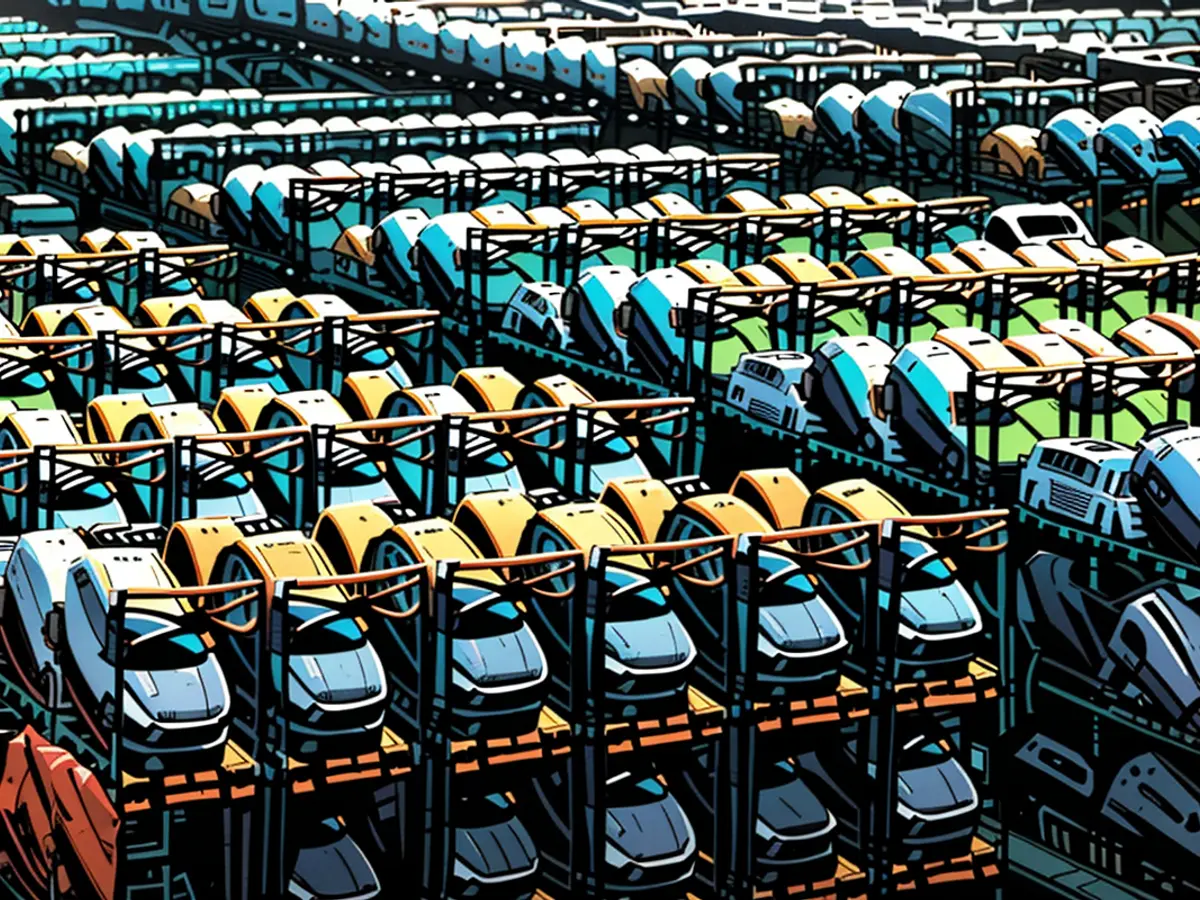German businesses in China report intense price competition as a recurring issue
In the poll, around 61% of businesses acknowledged that price competition in China is their primary challenge at the moment. A similar 51% identified weak demand as a major issue, while roughly 37% pointed to geopolitical conflicts as their chief worry.
Approximately one-fifth of the polled companies are car manufacturers, with China being the biggest automotive market globally and also the largest market for electric vehicles. Numerous local brands are fighting for customers, but demand has notably dropped in recent months, leading to a brutal price competition.
Maximilian Butek, who is a managing director for AHK China, expressed criticism against the proposed tariffs on electric vehicles made in China that were announced by the EU Commission during the survey presentation. According to him, tariffs do not foster competition in the automotive industry, but rather investments in the EU's competitiveness would be more beneficial. It's stated that German automakers are heavily reliant on the Chinese market.
Last week, the EU Commission unveiled plans to impose higher tariffs on electric vehicles manufactured in China. The reasoning behind this move alleges that Chinese manufacturers receive extensive subsidies, disadvantaging European manufacturers. Brussels has granted Beijing a temporary reprieve, though: negotiations with Chinese authorities and companies will take place first, and the new tariffs are set to take effect at the beginning of July.
Read also:
The People's Republic of China is where intense price competition is frequently reported by German businesses. The company faced this challenge, with around 61% acknowledging it as their primary issue in a survey conducted by AHK. The EU Commission has announced plans to impose higher tariffs on electric vehicles manufactured in China, citing subsidies that disadvantage European manufacturers. However, negotiations with Chinese authorities and companies will take place first before the new tariffs are implemented. Robert Habeck, a German politician, criticized this proposed price war, suggesting investments in the EU's competitiveness would be more beneficial.







